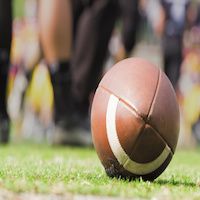More Medical Complaints Before a Concussion Could Affect Recovery Time in Athletes
Athletes with psychosomatic symptoms or medical complaints like aches and pains without concrete physical causes can prolong recovery time after suffering a concussion.

Athletes with psychosomatic symptoms or medical complaints like aches and pains without concrete physical causes can prolong recovery time after suffering a concussion.
Lindsay D. Nelson, PhD, assistant professor of Neurosurgery and Neurology at the Medical College of Wisconsin in Milwaukee presented findings at the American Academy of Neurology’s 68th Annual Meeting in Vancouver, Canada.
Nelson and colleagues aimed to determine how physical complaints before and after concussion play a role in recovery.
The study assessed 2,055 high school and college athletes for balance, thinking and memory skills, and psychological problems (depression, anxiety, dizziness, nausea, upset stomach, or chest pains).
Regarding psychosomatic problems, the athletes rated how often they’d been affected by these symptoms — approximately 50% of the participants had at least one of six symptoms while the second half exhibited no symptoms. During the season, 127 reported suffering from concussions, the average of which lasted for five days.
Findings suggested that a significant predictor of recovery after a concussion was the severity of early post-concussion symptoms. “Somatic complaints before injury also play an important role, either by possibly enhancing how a person experiences the injury or affecting their reporting of post-concussive symptoms,” according to Nelson.
Nearly 64% of patients with concussions said their symptoms were gone after one week; however, 95% said their symptoms left after one month.
Experts highlighted the athletes who reported pre-injury psychosomatic symptoms recovered at a slower rate than those who had no psychosomatic symptoms.
For instance, for those presenting the symptoms, 80% had recovered within 20 days of the concussion, but 80% of those without symptoms recovered within 10 days.
Experts acknowledged further research is underway to develop early interventions for the athletes at risk for prolonged recovery.